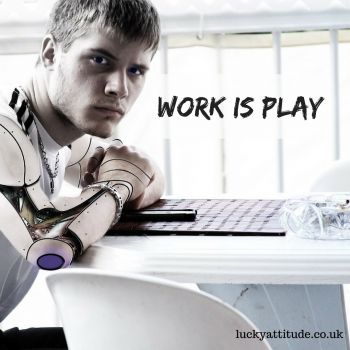How Fierce Millennial Demands At Work Have Improved Everyone’s Life

Work is changing for everyone, and it’s all Millennials’ fault 🙂
The change is not just driven by technology, but also ethics and social justice.
We want to be more environmentally friendly, more equal, and more sustainable than the businesses our parents built.
Young adults have sent HR into turbulence with their complaints and demanded a flatter business structure.
It has been for the better, that’s for sure, and it’s about time someone gave them credit for it.
Millennials start life-changing businesses
Millennials have built new businesses out of the ruins of a recession since 2008, and in doing so, they’ve changed the career expectations for a whole generation.
Millennial entrepreneurs worldwide have launched about twice as many businesses as boomers and Millennials are discovering entrepreneurship significantly earlier than boomers did: while the boomers launched their first businesses at roughly 35 years old, so-called “millennipreneurs” are setting out around 27.
More Brits are joining the freelance ranks. 1/7 of the UK workforce are self-employed and western society hasn’t seen a change this significant in more than a century. Since the crash of 2008, self-employment has skyrocketed in the UK.
Even Generation Z are realising that starting a company, even if it fails, teaches them more than sitting in a cubicle for 10 years. And learning is the number one force for societal and personal progress.
Are the young adults of today, more likely to take risks than the previous generations – or could it be that the opportunities of a digital world offer unconventional ways of making money which our parents didn’t have?
Millennials value collaboration over competition
The office should accommodate for collaboration, and not be a place, where we come together to stare at our computers.
If you are a business owner in charge of Millennial staff, it’s a good idea to make room for collaboration tools and take advantage of just how great the younger generation is at sharing, discussing, and cheering each other on.
One of the biggest influences on the speed and standard of work is the equipment – failing to invest in the latest technologies for your staff to utilise will encourage them to fall at the very first step.
Even a slow internet connection can add several hours to workflow and lots of needless frustration for your team. Infinity Group is the leading IT Support provider in London that are known for super-fast customer support (under 1-minute wait time on the phone). Infinity Group guarantees fast network connection so that your Millennial teams can be productive at all times.
Teamwork is something Millennials and Gen Z actually enjoy because working together is far more effective than doing it alone.
Young adults today have been collaborating at schools, sports teams, and on social media. Most Millennials nd Gen Z like working in groups and we prefer a sense of unity and collaboration over division and competition.
Millennials strive for a bigger purpose
You’ve noticed it, they’ve noticed it, and every business owner should have accepted it by now – young employees will not stay put.
You’re welcome to call it FOMO (fear of missing out), but there might be more to this increasing turnover than simply having to be where all the action is.
Changes mean movement, transition, and forward-thinking, which is something an office worker, who has been in the same job for a decade, won’t be able to offer.
Those, who spent a year or two working in an exciting startup, before trying their luck with a bigger company, returns with a treasure chest full of new ideas and experiences – and it moves the world forward.
Gone are the days of landing a job you’d be expected to be loyal to until you’re able to move upwards in the same company. Today, we move to the side before we move up and it keeps us on our toes.
Millennials follow the ‘work is a play’ mantra
Remember back in the days when work was work and play was play? Probably not 🙂
Technology blurs the boundaries between when we’re able to unwind and lean back, and it even makes it easier to squeeze in a bit of downtime in-between office hours.
Enjoy a class of yoga in the morning, check your work email before unrolling your mat, and go home afterwards to get some work done.
You’d think it drives us crazy, but it kind of takes the seriousness out of our everyday lives, and it makes it a lot easier to cram in some work wherever you are; at home, at the beach, or comfortably seated on the train.
It’s important to keep in mind that, this convergence culture is easier to handle for some than others.
As a business owner, whatever generation you might belong to, you should preach a healthy balance between work and life, making sure your employees don’t take their work back home with them every day, even though they can easily access it through a cloud.
Millennials normalised career breaks
Millennials are prioritising work-life balance over bigger salary and hence are more willing to move between companies and take sabbaticals to reset and reflect before starting new.
Instead of waiting another 40-50 years to retire, isn’t it better to take some of the retirement at the end of your life and distribute it to the middle of your life?
Waiting until you’re 70 to retire is simply too long to wait.
The problem with a one-week vacation is that it’s not always enough time to unwind, refresh and come back to work in the best space.
A sabbatical allows you to take the time for yourselves and come back to work motivated and with a fresh mind.
Once considered career suicide, sabbaticals are now not only accepted – but they are also used as employee retention techniques by many employers.
All thanks to Millennials ‘demands’.
